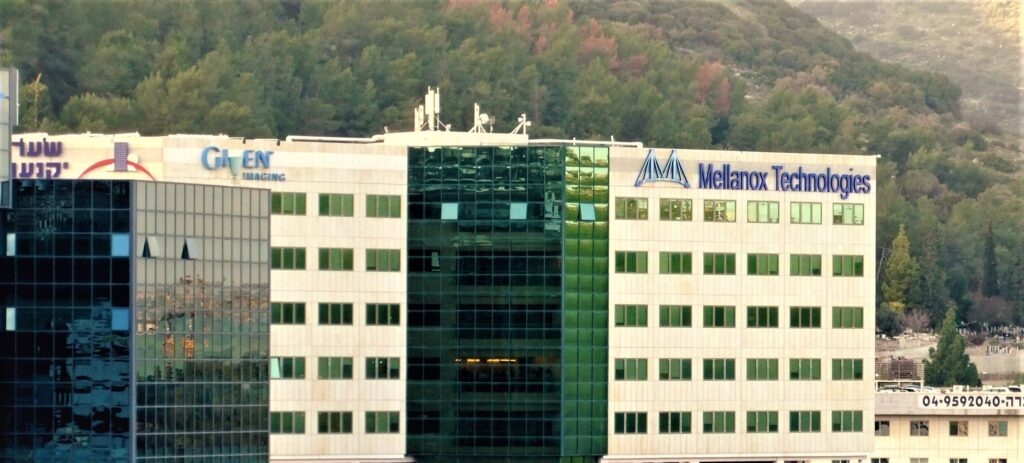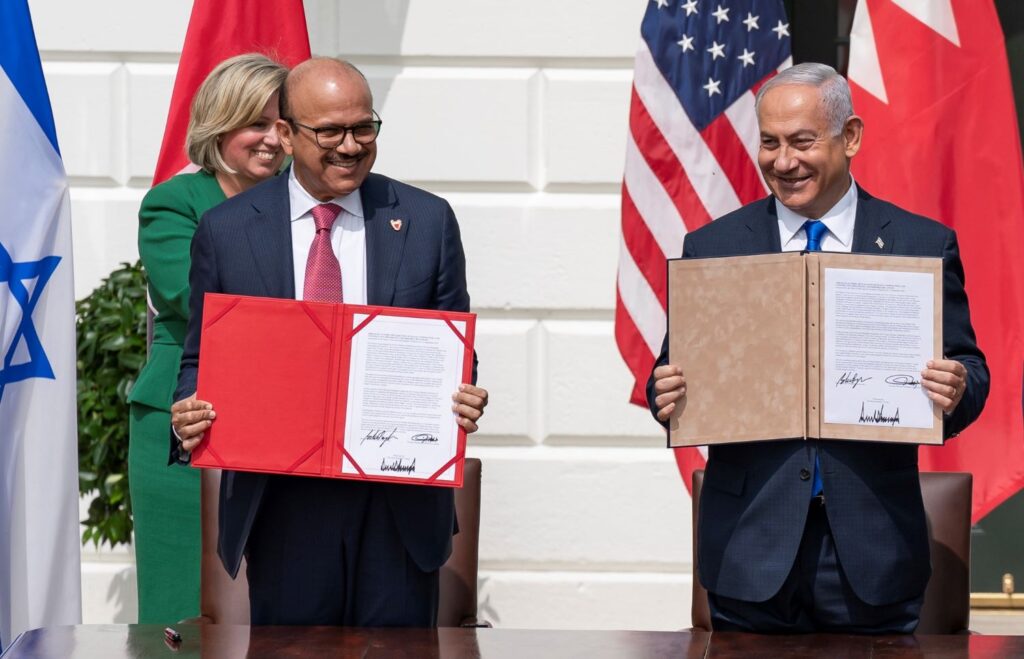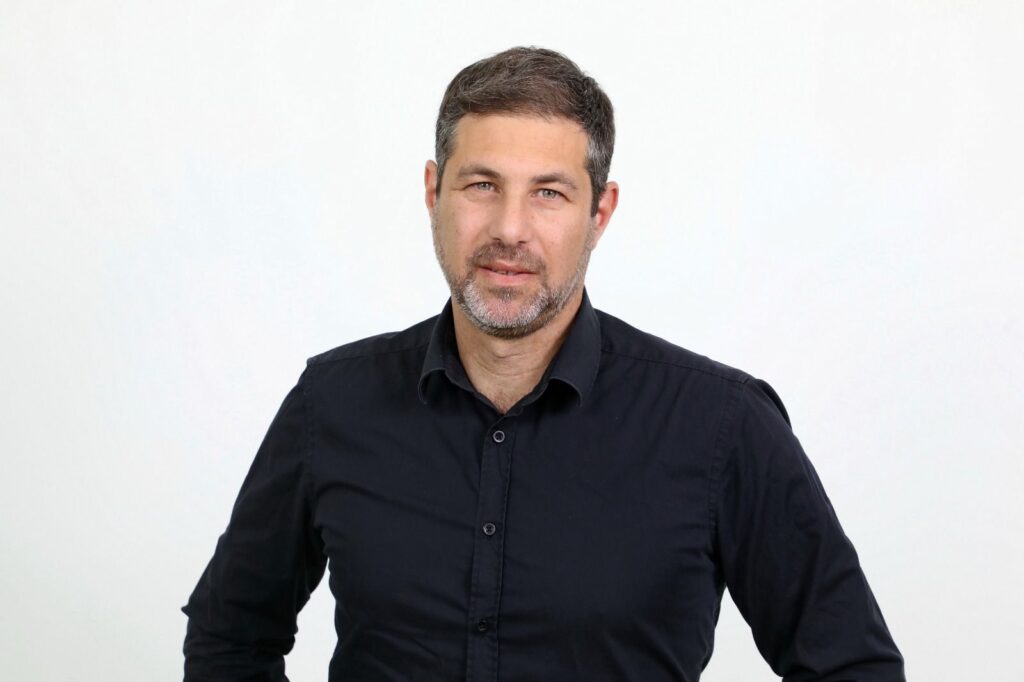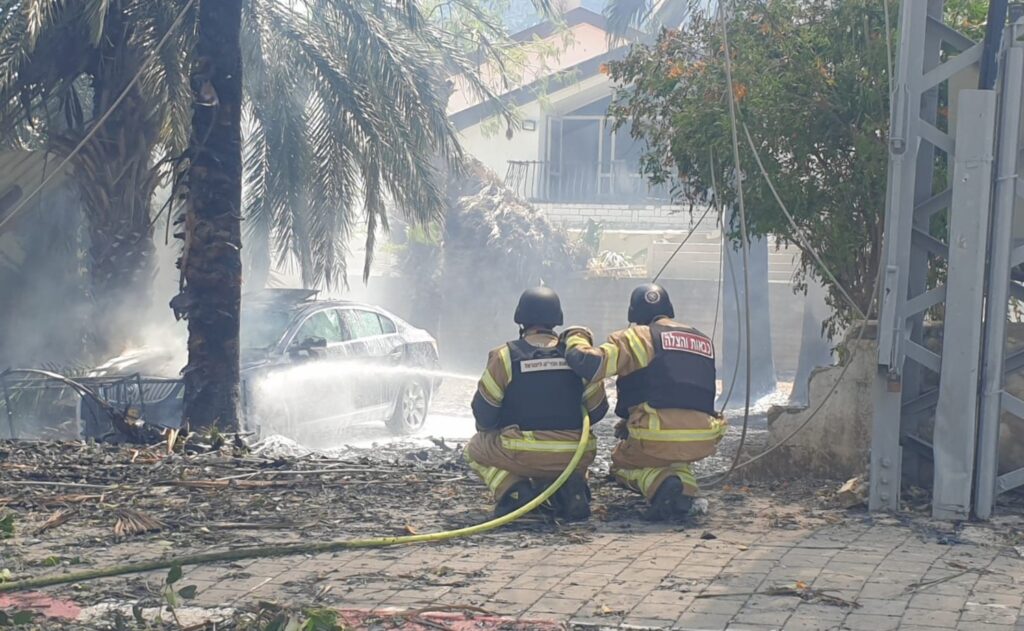A joint initiative by the Israeli government and private industry to help solidify the high-tech industry in the north of the country has taken on new significance as the region – much of it bereft of its population – is relentlessly bombarded by missiles from the Hezbollah terror group in Lebanon.
Nascent company CivicLabs applied to lead the initiative exactly one month before Hamas terrorists stormed across the border into southern Israel from Gaza on October 7, murdering 1,200 people and abducting hundreds more.
Iranian proxy Hezbollah began bombing the north a day later in “solidarity” with Gaza, and swathes of the area were evacuated of their residents due to the rocket fire and fears that a similar mass terror attack could be launched from the terror group’s denizens in southern Lebanon.
Ironically, the initiative is focused on startups in the sector of built environment – construction in populated areas, including everything from cities and parks to highways and buildings. For it is this field that will play a large part in reconstructing the devastated north when the ongoing conflict is over, even if the startups themselves do not play a direct role.
CivicLabs is based in the northern city of Yokneam – an already established high-tech hub that has earned the moniker “Startup Village.” It won the tender to run the initiative in late December and got to work on January 1, despite the conflict.
“We are not waiting for the war to end,” CivicLabs CEO Yogev Katzir tells NoCamels.

The initiative has been split into two key aspects: working with the startups to help them grow and working with stakeholders that support the burgeoning companies.
The work with the startups has also been meticulously demarcated into three areas, Katzir explains.
The first area is collaboration with any interested Israeli startups in the built environment sector, with what he calls “soft support” for challenges as they grow.
The second is a form of accelerator program for startups selected by CivicLabs, which will receive more substantial and sustained support.
“Our idea was to choose specific startups and really tailor a support suit for them, either with R&D, commercial activities or fundraising,” Katzir says.
“We are tailoring a different suit for each startup,” he explains, as each company has its own unique set of needs, be they meeting regulatory demands or even appealing to investors.
“The aim is really to try to create a support that will match their needs,” he says.
The final area is investment, with CivicLabs planning to bring in venture capital investors later this year for startups in the pre-seed, seed and Round A stages of fundraising.
As far as the stakeholders – whom Katzir describes as members of academia, local municipalities, corporations and other professional entities – are concerned, CivicLabs envisions close collaboration with both the startups and indeed the entire high-tech ecosystem.
Katzir explains that here too the relationship is split into three separate areas, albeit this time geographically.
The first area is Israel, in particular the north; the second is the immediate region, in particular around the Persian Gulf; and the third is a more global perspective, in particular Europe, Japan and North America.
Sign up for our free weekly newsletter
Subscribe
In actuality, much of the CivicLabs vision is based around regional cooperation, Katzir explains. This focuses in particular on Bahrain and the UAE, the two Gulf states that signed the 2020 Abraham Accords to normalize ties with Israel, although there is at least one nation in the region whose normalization with Israel is expected in the coming years.
“We also really wish to fulfill the Abraham Accords with genuine content between the GCC region and Israel,” he says.
“We are true believers in regional cooperation. We were true believers before October 7, and we are even bigger true believers after October 7, because we see the alternatives.”
Katzir says that CivicLabs saw the importance of “paving the innovation lane” between the Gulf states and Israel, with an exchange of assets between them.
“In the most basic sense, it’s technology coming from here to there, and resources and delegations going from there to here,” he says.
“In Israel, this is our competitive edge, not only regionally but also globally. Our aim is to really leverage it, maximize it and create those ties between nations, between people, between economies.”
Perhaps it will be more of a challenge since October 7, he admits but stresses that this just makes it even more important to establish those connections.

This international perspective can also be seen in CivicLabs’ shareholders, with two of the three being Impulse Partners from France and Shibumi International from the United Arab Emirates, although the parent company of the latter is based in Turkey.
The third shareholder is Baran Israel, part of the Baran Group, the country’s largest engineering firm. Baran Israel CEO Zohar Nevo praised the CivicLabs initiative as a crucial one for the north ravaged by nine months of daily bombings.
“We see a unique opportunity here to harness Israel’s advanced technological capabilities for the rebuilding of infrastructure,” he said.
“Baran brings experience in planning, infrastructure, and construction, and we believe that this combination, along with technological innovation and smart, efficient solutions, is critical for rehabilitation and development in the northern region.”
CivicLabs also received public funding from the Israel Innovation Authority, the branch of government devoted to advancing the national high-tech industry, and the Ministry of Regional Cooperation – a sign that the state, too, understands the scope for regional advancement through the initiative.
Ultimately, says Katzir, the emphasis must be on the rocket-battered north and helping to restore the area to its former bustling and dynamic glory.
For while the young companies growing up in the area might not be able to develop solutions fast enough for the rehabilitation of northern Israel, their presence does offer a sense of hope for the future.
Nor will CivicLabs base itself solely in Yokneam, Katzir says, giving the example of a new partnership with Braude College of Engineering in Karmiel.
“I think that we have a major role,” he says. “We feel the urgency of operating to give support to the region and the startups. And hopefully after the war, create a really vibrant ecosystem here.”
Related posts

Editors’ & Readers’ Choice: 10 Favorite NoCamels Articles

Forward Facing: What Does The Future Hold For Israeli High-Tech?

Impact Innovation: Israeli Startups That Could Shape Our Future




Facebook comments